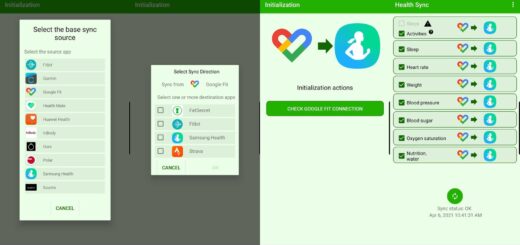10 Tips to Improve Your Health and Fitness
If you’re looking to enhance your overall well-being and boost your fitness levels, look no further. In this article, we will discuss ten simple and effective tips that can help you improve your health and fitness. From incorporating regular exercise into your routine to making mindful dietary choices, these tips are designed to empower you to take charge of your physical and mental health. Whether you’re a fitness enthusiast or just starting your wellness journey, these tips will provide you with practical advice and guidance to help you achieve your health goals. So, grab a pen and paper because we’re diving straight into the ten tips that can transform your health and fitness game.
Eat a Balanced Diet
Maintaining a balanced diet is essential for your overall health and well-being. By including a variety of fruits and vegetables in your meals, you provide your body with essential vitamins, minerals, and fiber. These nutrients support your immune system, promote healthy digestion, and reduce the risk of chronic diseases.
Another important aspect of a balanced diet is choosing whole grains over refined grains. Whole grains, such as whole wheat, oats, and brown rice, are rich in fiber and nutrients. They provide sustained energy, help regulate blood sugar levels, and aid in weight management.
It’s crucial to limit the intake of sugary and processed foods. These foods are often high in calories, unhealthy fats, and added sugars, which can contribute to weight gain and increase the risk of developing diseases like diabetes and heart disease. Opt for healthier snacks like fresh fruits, nuts, or yogurt instead.
Incorporating lean proteins into your meals is also vital for a balanced diet. Lean proteins, including chicken breast, fish, tofu, and legumes, provide essential amino acids for muscle growth and repair. They also help you feel fuller for longer and support weight management.
Lastly, don’t forget to stay hydrated throughout the day. Water is essential for maintaining proper bodily functions, including digestion, circulation, and temperature regulation. Aim to drink an adequate amount of water daily, and remember to stay hydrated during physical activity to replenish fluids lost through sweat.
Exercise Regularly
Regular exercise is key to improving your health and fitness. Engaging in cardiovascular activities, such as running, swimming, or cycling, helps strengthen your heart and lungs, improves endurance, and burns calories. Aim for at least 150 minutes of moderate-intensity aerobic exercise or 75 minutes of vigorous-intensity aerobic exercise per week.
Incorporating strength training exercises into your routine is equally important. Strength training helps build and maintain muscle mass, increases bone density, and improves overall strength and stability. Include exercises like weightlifting, resistance band workouts, or bodyweight exercises at least two days per week.
To keep your exercise routine interesting, try out different forms of exercise for variety. Explore activities like yoga, Pilates, dance classes, or team sports. By mixing up your workout routine, you engage different muscle groups, prevent boredom, and increase motivation.
Set realistic fitness goals and track your progress to stay motivated. Whether it’s aiming to run a certain distance, lift heavier weights, or improve flexibility, establishing clear goals helps you stay focused and measure your achievements. As you reach milestones, reward yourself and celebrate your hard work.
Don’t forget to include stretching and flexibility exercises in your routine. Stretching helps improve joint range of motion, prevent injuries, and relieve muscle tension. Incorporate activities like yoga or dedicated stretching sessions to increase flexibility and promote relaxation.
Get Sufficient Sleep
Getting enough quality sleep is essential for your overall health and well-being. Establishing a consistent sleep schedule is key to ensuring you get sufficient rest every night. Try to go to bed and wake up at the same time each day to regulate your internal body clock.
Creating a relaxing bedtime routine can also help you prepare for sleep. Engage in calming activities such as reading a book, taking a warm bath, or practicing meditation. Avoid stimulating activities, like using electronic devices or consuming caffeine, at least an hour before bed, as they can interfere with your sleep quality.
Ensure your sleep environment is comfortable and conducive to sleep. Keep your bedroom cool, dark, and quiet. Invest in a comfortable mattress, pillows, and bedding to support a restful night’s sleep. Consider using white noise machines or earplugs if noise is a concern.
If needed, consider incorporating short naps into your day to boost your energy levels. Keep naps between 10 to 30 minutes to prevent interfering with your night sleep. Taking a power nap can help improve cognitive function, enhance mood, and increase productivity.
Manage Stress
Stress management is crucial for maintaining both your physical and mental health. Practice relaxation techniques such as deep breathing exercises, meditation, or mindfulness to help reduce stress levels. These techniques promote a sense of calm and help you cope with life’s challenges more effectively.
Engaging in activities you enjoy is also an excellent way to alleviate stress. Whether it’s painting, playing a musical instrument, or gardening, find outlets for creativity and relaxation. Taking time for hobbies and interests allows you to recharge and shift your focus away from stressors.
To reduce overwhelm, prioritize and organize your tasks. Create to-do lists, set realistic goals, and break larger tasks into smaller, manageable steps. By organizing your responsibilities, you can approach them more efficiently and reduce stress related to feeling overwhelmed.
Don’t hesitate to seek support from friends, family, or a therapist if needed. Sharing your thoughts and feelings with trusted individuals can provide comfort, guidance, and a different perspective. Having a support system in place can help you navigate through challenging times more smoothly.
Taking breaks throughout the day is also essential to recharge and manage stress. Step away from your work or daily responsibilities, even if only for a few minutes, and engage in activities that bring you joy or relaxation. Whether it’s taking a short walk, listening to music, or practicing a hobby, these mini-breaks can make a significant difference in your overall well-being.
Stay Hydrated
Hydration plays a critical role in maintaining your health and well-being. Make sure to drink an adequate amount of water daily. Water is essential for transporting nutrients, regulating body temperature, and flushing out toxins. Aim to drink at least eight glasses of water per day or more if you engage in physical activity or live in a hot climate.
Limiting the consumption of sugary beverages is equally important. Drinks like soda, fruit juices, and energy drinks are often high in empty calories and can contribute to weight gain and dental problems. Opt for healthier alternatives such as infused water, herbal tea, or low-fat milk.
Carrying a reusable water bottle with you is an excellent way to ensure you have access to water throughout the day. Refill your bottle as needed to stay hydrated easily. Having a water bottle handy also serves as a reminder to drink water regularly.
Monitoring your urine color can also help gauge your hydration level. Clear or light yellow urine generally indicates adequate hydration, while darker urine may be a sign of dehydration. Pay attention to your body’s signals and increase fluid intake if necessary.
Remember to stay hydrated during physical activity as well. Drink water before, during, and after workouts to replenish fluids lost through sweat. If you engage in intense exercise or prolonged activity, consider consuming sports drinks that contain electrolytes to help replace what’s lost during vigorous exercise.
Limit Alcohol and Tobacco Use
While enjoying the occasional alcoholic beverage may be a social norm, it’s crucial to moderate alcohol consumption or avoid it altogether. Excessive alcohol intake can lead to various health problems, including liver disease, heart conditions, and addiction. If you struggle to control your alcohol intake, don’t hesitate to seek help from a healthcare professional or support groups.
Quitting smoking or engaging in a smoking cessation program is another significant step towards improving your health. Tobacco use is associated with numerous health risks, such as cancer, respiratory diseases, and cardiovascular disorders. Explore healthier alternatives or coping mechanisms to help you quit smoking successfully.
It’s essential to be mindful of the health risks associated with tobacco use, such as secondhand smoke exposure. Not only does smoking affect your health, but it can also harm the health of those around you. Consider the well-being of yourself and others when it comes to tobacco use.
Maintain Social Connections
Maintaining social connections is vital for your mental and emotional well-being. Spend quality time with your family and friends, as these relationships provide support, companionship, and a sense of belonging. Engage in activities together and create lasting memories.
Joining community groups or clubs with shared interests is another excellent way to foster social connections. Whether it’s a sports team, book club, or volunteer organization, participating in group activities provides opportunities to meet new people and expand your social network.
Geographical distance shouldn’t hinder your ability to connect with loved ones. Use technology to bridge the gap by video calls, messaging apps, or social media platforms. Stay in touch with family and friends who may live far from you, and make an effort to maintain those relationships.
Participate in social activities and gatherings within your community. Attend local events, festivals, or neighborhood gatherings to meet new people and engage with others. Active involvement in the community helps create a sense of belonging and enhances your social well-being.
Don’t be afraid to share your thoughts and feelings with trusted individuals. By opening up to others, you foster deeper connections and create a support system. Having someone to confide in can alleviate stress, provide comfort, and promote emotional well-being.
Practice Mindfulness
Practicing mindfulness is a valuable habit to improve your overall well-being. Mindfulness involves focusing on the present moment and cultivating awareness without judgment. By being fully present, you can enhance your physical and mental health.
Engage in activities that promote mindfulness, such as yoga or meditation. These practices encourage focused breathing and bring your attention to the present. Regular yoga or meditation sessions can help reduce stress, improve concentration, and increase self-awareness.
Learn to observe your thoughts and emotions without judgment. Rather than getting caught up in negative or racing thoughts, try to become an observer of your own mind. Recognize that thoughts come and go, and you have the power to choose which ones you engage with.
Practicing gratitude and positive affirmations can also promote mindfulness. Take a few moments each day to reflect on the things you’re grateful for, big or small. Repeat positive affirmations that uplift and empower you. These practices shift your focus to the positive aspects of life and enhance your overall well-being.
Take regular breaks to disconnect from technology and be present in the moment. Constant connectivity can lead to overwhelm and distraction. Set aside specific times throughout the day to turn off your devices, step away from screens, and engage in activities that allow you to recharge and reconnect with yourself.
Prioritize Regular Medical Check-ups
Regular medical check-ups are vital for maintaining your health and detecting any potential issues early on. Schedule routine visits with your healthcare provider to assess your overall health and receive necessary preventive care. Regular check-ups allow you to address any concerns or symptoms promptly.
During these visits, discuss any health concerns or symptoms you may have. Open communication with your healthcare provider ensures you receive appropriate care and proper guidance. Be prepared with any questions or issues you want to address during the appointment.
Maintaining regular screenings for common health conditions is an essential part of preventive care. These screenings can help detect diseases and conditions early, when they are more manageable. Some common screenings include blood pressure checks, cholesterol level tests, mammograms, and Pap smears. Consult with your healthcare provider to determine which screenings are appropriate for you based on your age and medical history.
Staying up to date with vaccinations is also crucial for your well-being. Vaccines protect against various infectious diseases, and getting vaccinated can help prevent illness and promote community health. Keep a record of your vaccinations and follow your healthcare provider’s recommendations for booster shots or additional vaccines.
Follow your healthcare provider’s recommendations for any ongoing healthcare needs or chronic conditions you may have. Maintain regular follow-up appointments, adhere to medication regimens, and make necessary lifestyle modifications. By taking an active role in your healthcare, you can optimize your well-being and prevent potential complications.
Seek Professional Guidance
Seeking professional guidance from experts in specific areas can be highly beneficial for your health and well-being. Consider consulting with a registered dietitian for personalized nutrition advice. A dietitian can help you develop a tailored eating plan, address dietary concerns, and make sustainable lifestyle changes to support your overall health goals.
Hiring a certified personal trainer is an excellent way to receive effective exercise guidance. A trainer can design a workout plan customized to your needs and fitness level, ensuring you perform exercises safely and efficiently. They can also provide motivation, accountability, and help you set realistic goals.
Working with a mental health professional is crucial for your emotional well-being. If you’re struggling with stress, anxiety, depression, or any other mental health concerns, seek the guidance of a therapist. A mental health professional can provide support, coping strategies, and therapeutic interventions to help you navigate through difficult emotions and challenges.
Visiting a physical therapist is recommended for injury prevention and rehabilitation. If you’ve experienced an injury or suffer from chronic pain, a physical therapist can evaluate your condition, develop a targeted treatment plan, and guide you through exercises and therapies to promote healing and regain functionality.
Consider alternative therapies under expert supervision if you’re interested in complementary approaches to health and well-being. Modalities such as acupuncture, chiropractic care, or herbal medicine can be beneficial for certain individuals. It’s essential to consult with qualified practitioners who can evaluate your specific needs and ensure your safety.
By implementing these tips and making positive changes in your life, you can significantly improve your health and fitness. Remember that small steps and consistent efforts lead to long-lasting results. Take care of yourself, prioritize your well-being, and enjoy the journey towards a healthier and happier you.
















It's great that you talked about how business insurance can provide financial protection against unexpected events and help ensure the…
I like that you mentioned how business insurance is essential for protecting your bottom line and the long-term viability of…